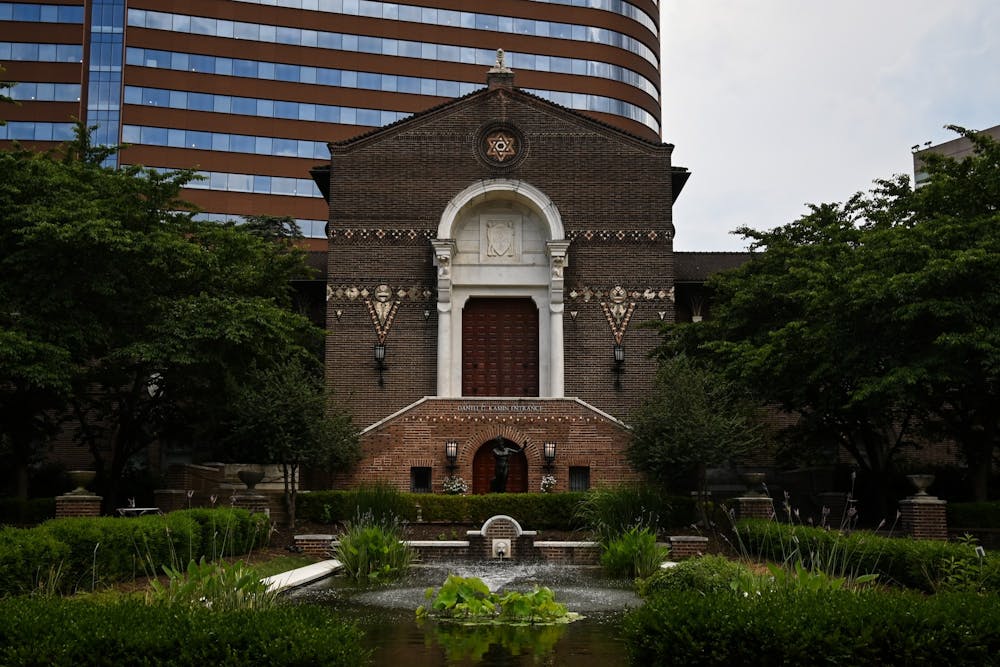
Since its temporary closure due to COVID-19, the Penn Museum has launched a newly designed virtual platform that allows visitors to explore the Museum and participate in interactive programs from home.
Established in 1887, Penn Museum is an archeology and anthropology museum located on Penn’s campus at the intersection of 33rd and South Streets. Since announcing its temporary closure to the public on April 10 due to the coronavirus pandemic, Museum faculty and staff have focused on expanding their online presence by offering free and accessible remote programs to the public.
Penn Museum at Home is an initiative that furthers the Museum’s mission of understanding the human experience, Penn Museum Public Relations Director Jill DiSanto wrote in an email to The Daily Pennsylvanian.
“It’s something that we’ve never done before, so it was an exciting opportunity for us to quickly pivot. By adding technology into the mix, we were able to virtually share our work, research, expertise, and public programs with people around the world,” DiSanto wrote.
Penn Museum Director of Learning and Public Engagement Ellen Owens said the Museum has placed a greater emphasis on their virtual platform in the last decade by posting lectures on YouTube, in addition to hosting teleconferences for local schools and community centers.
Because of prior experience with increasing virtual offerings, the Museum already had staff members who were skilled in digital education when COVID-19 hit the city, Owens said. They still had to make many changes, however, including training all of the staff on new platforms and developing Museum programs that could be accessed by a wider audience.
“Museums tend to move very slowly — they like to get things really right the first time. But obviously this circumstance didn't really allow for making the most perfect thing from the start,” Owens said.
Some of the new, virtual programs offered include a daily three-minute exploration of an artifact titled Digital Daily Digs, a family-focused project titled At-Home Anthropology for Kids, a history-based video lecture series titled Great Catastrophes, and a monthly book club that will run until December.
Rising College sophomore and Penn Museum Marketing and Communications Intern Ana Gomez assisted in promoting events and programs as they went virtual. Gomez worked on projects for the Museum remotely, including creating Zoom backgrounds, uploading material for digital events, and tweeting from the Museum's Twitter account.
Owens said one new feature of the Penn Museum's remote material is the weekly Living Room Lectures series, where a Museum expert hosts an informal discussion on Facebook Live during happy hour, each Thursday evening. The livestreams are then uploaded to the Penn Museum website so that those without Facebook accounts can access them.
“This started off as a wild idea, and we really didn’t know if people would like it. But people are so interested and we have people tuning in from all over the world,” Owens said.
Owens said that the Living Room Lectures provide a contrast to the formal, sometimes intimidating feeling of going to a museum, which reflects the Museum’s priority of increasing access to its materials. Owens said almost all of the offered programs are either free or include a small fee, and they are available to both Museum members and non-members through multiple platforms.
“We feel very lucky and grateful for all the support. All of the educators and all the people at the Museum have been able to dive into this very quickly,” Owens said. “It’s exciting because the things that we’ve been creating have a shelf life that will last much longer than just this period.”
Owens said staff are not sure when Penn Museum will be able to reopen, but that a 40-person task force has been created to outline how the Museum will operate when it is safe enough to do so.
“We have a phased plan, with getting staff in first and then general visitors, before eventually adding groups,” Owens said. “But we are in no rush and we will listen to the experts and abide by their rules.”
The Daily Pennsylvanian is an independent, student-run newspaper. Please consider making a donation to support the coverage that shapes the University. Your generosity ensures a future of strong journalism at Penn.
Donate







